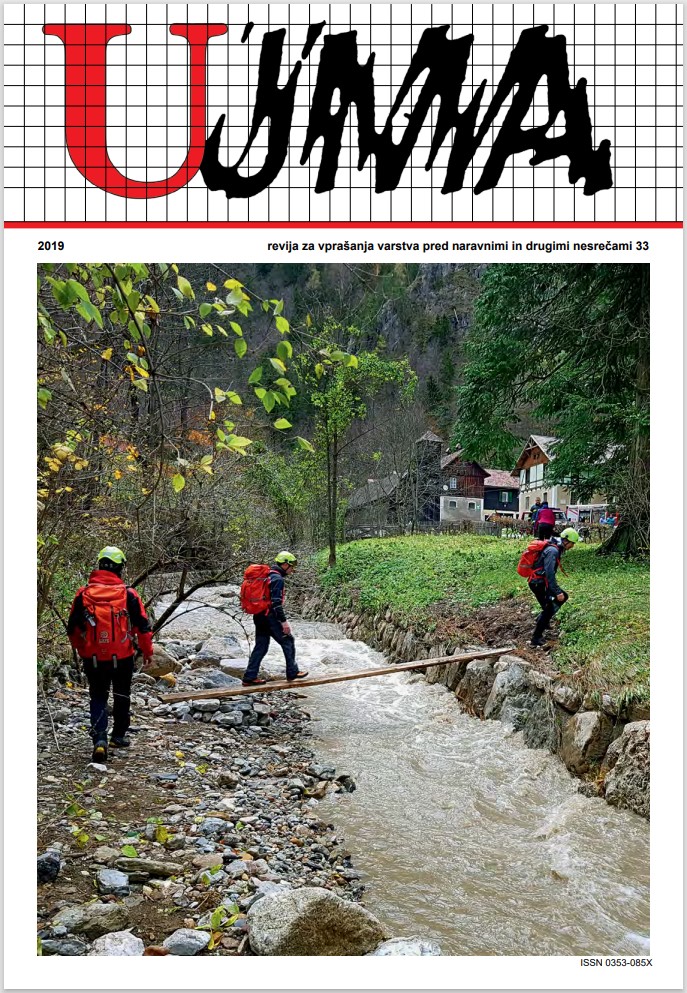REPORT ON THE 1ST AND 2ND SYMPOSIUMS OF THE HEAT-SHIELD PROJECT ON MITIGATING THE NEGATIVE IMPACTS OF OCCUPATIONAL HEAT STRESS
Abstract
The negative impacts of occupational heat stress have been emerging and increasing in Europe as a result of climate change. Workers in some economic sectors are already experiencing heat strain and the symptoms of heat stress, which can lead to health problems and reduced productivity. As part of the EU Heat-Shield project (Horizon 2020), research is now being carried out in Europe, including Slovenia. Awareness of the negative effects of heat stress and possible preventive measures is still low, so two symposiums have been organized in several EU countries. As project partners, the Biotechnical Faculty (University of Ljubljana) and the Jozef Stefan Institute organized a symposium in the EU House in Ljubljana for two consecutive years. Each year, approximately 20 participants from various institutions showed interest in this topic. The main focus of the project is on simpler strategies. Most stakeholders agree that the introduction of pre-planned short breaks into the work schedule is the easiest and most effective; however, it must be explained to employers that this measure will not reduce the overall performance of workers. A cool break area, outside shade and, if possible, ventilation must be available, and workers must have access to cold water. Although many stakeholders are aware of the importance of hydration, the results of European research show that most workers (around 70%) come to work dehydrated. This article summarizes the discussions and conclusions of the two symposiums.
References
Flouris, A. D., Dinas, P. C., Ioannou, L. G., Nybo, L., Havenith, G., Kenny, G. P., Kjellstrom, T., 2018. Workers’ health and productivity under occupational heat strain: a systematic review and meta-analysis. Lancet Planetary Health 2018, 2, e521–531.
Ioannou, L. G., Tsoutsoubi, L., Samoutis, G., Kajfez Bogataj, L., Kenny, G. P., Nybo, L., Kjellstrom, T., Flouris, A. D., 2017. Time-motion analysis as a novel approach for evaluating the impact of environmental heat exposure on labor loss in agriculture workers. Temperature, 4, 3, 330–340.
Piil, J. F., Lundbye-Jensen, J., Christiansen, L., Ioannou, L., Tsoutsoubi, L., Dallas, C. N., in sod., 2018. High prevalence of hypohydration in occupations with heat stress – Perspectives for performance in combined cognitive and motor tasks. PLoS ONE 13(10), e0205321.
Piil, J. F., Mikkelsen, C. J., Junge, N., Morris, N. B., Nybo, L., 2019. Heat Acclimation Does Not Protect Trained Males from Hyperthermia-Induced Impairments in Complex Task Performance. Int. J. Environ. Res. Public Health 2019, 16, 716.
Pogačar, T., Črepinšek, Z., Kajfež Bogataj, L., Nybo, L., 2017. Comprehension of climatic and occupational heat stress amongst agricultural advisers and workers in Slovenia. Acta agriculturae Slovenica, 109, 3, 545–554.
Pogačar, T., Casanueva, A., Kozjek, K., Ciuha, U., Mekjavić, I. B., Kajfež Bogataj, L., Črepinšek, Z., 2018. The effect of hot days on occupational heat stress in the manufacturing industry: implications for workers’ well-being and productivity. Int J Biometeorol 62, 7, 1251–1264.
Pogačar, T., Žnidaršič, Z., Kajfež Bogataj, L., Flouris, A. D., Poulianiti, K., Črepinšek, Z., 2019. Heat Waves Occurrence and Outdoor Workers’ Self-assessment of Heat Stress in Slovenia and Greece. Int. J. Environ. Res. Public Health 2019, 16, 597.
Downloads
Published
Issue
Section
License

This work is licensed under a Creative Commons Attribution-NonCommercial-NoDerivatives 4.0 International License.
The articles are made available to the public under Creative Commons Attribution-NonCommercial-NoDerivatives 4.0 International (CC BY-NC-ND 4.0).


